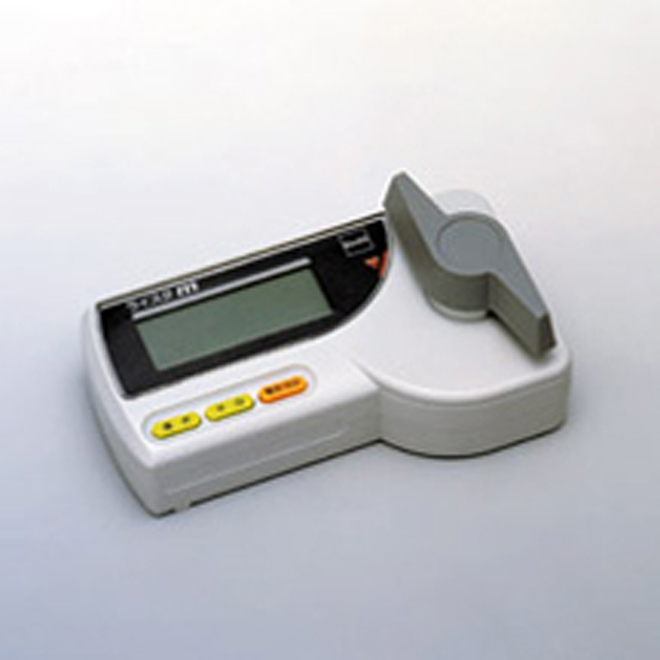The Ultimate Guide to Moisture Meters: A Comprehensive Summary and Exactly How They Can Save You Cash
Moisture meters serve as vital tools in discovering and keeping track of moisture web content in materials, aiding in avoiding costly problems and ensuring the top quality of items. Comprehending the subtleties of various types of wetness meters, their applications, and the potential cost-saving advantages they provide can be a game-changer for services and professionals alike.
Sorts Of Wetness Meters
Different sorts of moisture meters are available for different applications in various sectors. One common kind is the pin-type dampness meter, which measures the electric resistance in between two pins inserted into a material. This kind is ideal for wood, drywall, and various other structure materials. Pinless moisture meters, on the various other hand, use electro-magnetic sensing unit plates to scan a larger area without creating damage to the material's surface. Moisture Meter. These meters are perfect for promptly assessing moisture degrees in big areas such as wall surfaces and floors.

Furthermore, there are additionally specialty wetness meters created for particular materials like dirt, grain, or hay. These meters offer exact wetness analyses tailored to the special homes of the material being examined. Infrared moisture meters measure the thermal homes of a product to identify its moisture web content non-invasively, making them valuable for applications where pin or pinless meters may not be appropriate. Recognizing the different sorts of moisture meters readily available can assist markets choose the most proper device for their certain dampness dimension demands.

Benefits of Utilizing Wetness Meters
Dampness meters use very useful benefits in precisely monitoring and examining moisture levels in varied materials and environments. One of the key advantages of making use of moisture meters is the prevention of prospective damage caused by excess wetness.
In addition, utilizing dampness meters can lead to increased power effectiveness. In agricultural settings, dampness meters play a crucial function in enhancing crop returns by making it possible for farmers to keep an eye on dirt wetness degrees and make educated irrigation choices.
Exactly How to Select the Right Moisture Meter
Selecting the suitable dampness meter entails taking into consideration essential aspects such as product compatibility, measurement variety, and calibration accuracy. When choosing a dampness meter, it's necessary to make certain that the meter is appropriate for the specific product you will be screening. Different materials have differing electrical properties that can impact moisture readings, so picking a meter designed for your product is crucial for accurate results. Additionally, consider the measurement series of the wetness meter. Make sure that the meter can discover wetness levels within the array needed for your applications. Calibration official website precision is one more critical element to bear in mind. Select a wetness meter with trustworthy calibration to make certain regular and exact readings. Some meters may require periodic calibration modifications, so recognizing the calibration process is essential. By very carefully assessing these factors, you can pick a wetness meter that satisfies your requirements and supplies exact dampness measurements for your jobs.
Appropriate Strategies for Dampness Meter Usage

Cost Cost Savings Via Dampness Meter Applications
Just how can the tactical use of wetness meters lead to considerable cost financial savings throughout numerous industries? Dampness meters play a crucial duty in expense savings by preventing potential damages and guaranteeing high quality control in different fields. In the agriculture industry, dampness meters help in establishing the ideal time for harvesting crops, preventing over-drying or excess wetness that can affect the final product's high quality. This accurate tracking assists farmers prevent unneeded losses and maximize their return.
Likewise, in construction, moisture meters help avoid costly damages by identifying wetness levels in building materials, Your Domain Name such as timber or concrete, which can cause architectural problems otherwise attended to promptly. By recognizing trouble areas early on, contractors can take rehabilitative measures to avoid substantial fixings or substitutes, ultimately saving time and money.
In addition, in the food processing market, moisture meters are crucial for checking item high quality and making certain compliance with safety and security guidelines. By accurately gauging wetness content in food, suppliers can protect against putridity, maintain freshness, and lower waste, leading to substantial expense financial savings. On the whole, the critical application of moisture meters is a useful financial investment that can lead to substantial expense reductions and boosted performance throughout various sectors.
Conclusion
In final thought, dampness meters are valuable devices for detecting and determining dampness levels in various products. By using the best dampness meter and adhering to correct methods, customers can efficiently avoid pricey damages triggered by excess dampness. Buying a top quality moisture meter can lead to significant cost savings in the long run by identifying prospective concerns beforehand and making it possible for timely removal. Eventually, moisture meters are vital instruments for preserving the integrity and longevity of products and frameworks.
Wetness meters serve as essential devices in detecting and checking moisture content in materials, aiding in avoiding pricey problems and guaranteeing the quality of items. Infrared dampness meters determine the thermal properties of a material more to determine its moisture material non-invasively, making them beneficial for applications where pin or pinless meters may not be appropriate.Moisture meters use indispensable benefits in accurately keeping an eye on and evaluating dampness degrees in varied products and environments. In agricultural settings, moisture meters play a vital role in maximizing crop yields by allowing farmers to keep an eye on dirt wetness degrees and make informed irrigation choices.In verdict, dampness meters are useful devices for measuring and detecting dampness degrees in different materials.